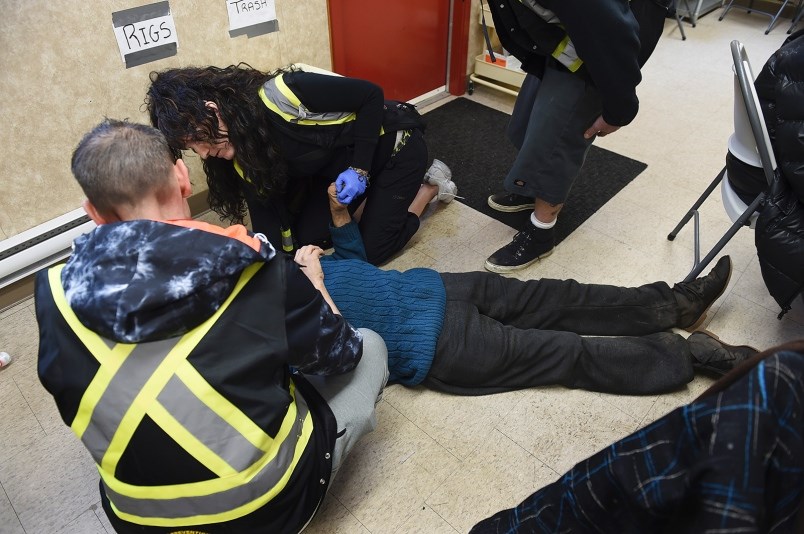He ended up in the mental health unit of a Lower Mainland hospital. There were discussions between the family and doctors on the ward about how to treat my brother. But nothing was done. He was released from care, and then he spent the next decade in and out of jail and in and out of rehab centres and halfway houses.
Two months ago, I got another call — he’d ingested fentanyl and collapsed on a city sidewalk. He didn’t die, but that’s just because he happened to be on the street when it happened, where he’d walked from the house nearby where he rents a room. If he’d gone home to get high, he would be dead now. But he couldn’t wait to get home. And that sad fact saved his life. This time.
While government officials continue to discuss courses of action, sons and daughters continue to be sold toxic drugs that they die from every single day. They aren’t “overdosing.” They are being dosed.
Over 1,200 people have died from the ever more toxic drug supply since the beginning of this year. That’s the highest rate ever. More than 150 people every month for the last nine months have died; 72% were between the ages of 30 and 59. Most are men, and most die alone.
I don’t know what you think about when you hear those statistics. It’s a far-away problem for most. It’s not important because it’s not happening to you or anyone you know; it’s a street problem, a city problem, a poverty problem.
Actually, it’s a mental health problem, and it’s right in front of you all the time.
My brother lives with Tourette’s Syndrome and depression. He got addicted to drugs at a vulnerable time in his life and has never been able to get free. He takes multiple medications for his various symptoms. He’s a loner and sticks to himself.
After his last fentanyl ingestion, he was released from the hospital in the middle of the night without consultation to walk home alone in the rain. Just that image breaks my heart. He could try to see therapists and get better, but the process of calling and waiting for weeks for appointments is too much of a barrier for him. He lives from day to day and depends on a simple, structured routine to keep him on track. But he isn’t. His recent overdose is proof of that.
He works a regular job and has a stable home. But there’s always that chance, that “what if.” What if he relapses, what if he overdoses, what if he ingests something that’s too strong for even his big body? What if the next time is the last time?
For now, I wait. Wait for the government to figure out their big plan. To figure out the answers. Or for the next time I get a call. Whichever comes first.
[If you are in ┬ķČ╣╔ń╣·▓·and need help, connect to the on or head to the Overdose Prevention Site located at 37930 Third Ave.: 604-849-1991. ]
Stacy Thomas is a journalist, ┬ķČ╣╔ń╣·▓·resident and sister. Her brother approved the telling of his story in this column.




